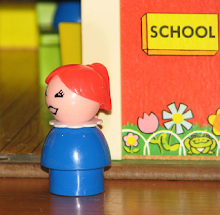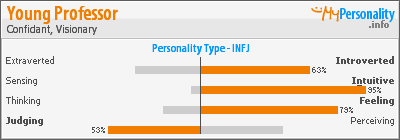
"Earlier today I was feeling sick, and fantasizing about not going to class tomorrow," she says to her sister & roommate extraordinaire. "But I really don't think I can justify it."
"It never occurred to me that teachers ever felt that way," said her sister.
Class on Tuesday went so badly. At first, only three of my sixteen showed up. I'd planned out this in-class writing exercise that I felt pretty good about: first, have a discussion of the novel, answer questions, to prevent a 'we just don't understand it at all!' moment like what happened last time. Then, break them into groups and have them plan and write a short essay in class about a simple question ("Do Frank and April Wheeler have a good marriage?") that they can argue effectively either way, which will make them close-read just a little bit, think just a little bit about their own values, and probably give them a leg up when they go to do their at-home essays. Yesss.
But then only three students came to class.
After ten minutes of waiting around to see if anyone else showed up, I felt angry---I hadn't wanted to get up and come to class either, damn it---so much so that I almost said, I can't teach just three of you, and let them go. Perhaps not the most mature response, but it's the one that came to me. A couple more students showed up, though, and we eventually swelled to six or seven. We decided to do the writing exercise all together, though, so I spent most of the period up at the board, helping them to plan and outline an essay. It was like pulling teeth. I'd ask something and just get silence, with the occasional eye-roll. I could not understand whether the students hadn't read the reading, didn't understand the reading, or were just not in the mood to deal with class. (Or, I wondered in a later, calmer moment, as I was walking down into the subway: are they just not socialized to be able to talk about books yet? Am I modeling that for them from step one? Do I simply take interpretation, which has been a part of my life from the moment my English-professor mother rocked me in my cradle, so for granted that I'm mistaking ignorance for obstinacy?) I felt like I was talking to myself. I think that at one point I used the word "fuck" under my breath, but probably audibly so.
Luckily, one talkative student arrived, late, to save me. She and I carried most of the class ourselves. After everyone else had left, I thanked her for her energy. "I'm enjoying this book," she said. "I don't understand why people wouldn't be interested in talking about it." The act of thanking her left a small gleam in my heart to get me home, but damn. I did not want to go back in there today.
It's very weird. Today just went better. And I think that my pissed-off attitude from last time might actually have helped.
I didn't spend a hundred hours prepping class, because I was angry and I didn't feel like it be worth it to sink a lot of work in if only a few students were going to show up anyway. I did my other stuff, and graded some papers, and then noodled around on the computer...doo de doo...oop, it's starting to get late...hmm...okay, shit, I really have to do this reading. I sat and did the reading, and was not able to concentrate well, partly because I was panicked about the next day. Curiously, I felt like that state of mind got me closer to the experience of being one of my students reading the book than I had yet felt. Maybe I was filling with a new empathy!
Quickly, like a shopper in a store that's about to close, who grabs just any-old-thing off the shelf, I decided that tomorrow we'd do close reading. It's a skill they need to learn, we might as well do it tomorrow. I already had a handout about close reading from when I taught at Big University. I'd copy that, and we'd close read...this one passage on pages 218-219 that I marked out, where Frank and April are fighting and Frank is acting totally vain and weird. I want them to catch onto the fact that he's described here as being like an actor, and that this is key to understanding Frank's whole character. And then, we'll do a free-writing, or maybe--yeah!---I'll assign them a close-reading to do as homework, and give them time to start on it in class if I need to.
Work expands to fill the time available, as the old saying says, but sometimes, luckily, it also works the other way. I was in bed by 11:30, ready to be up and swinging at 6:30, in class by 8.
I felt nervous on the subway this morning about my less-than-thoroughly planned lesson, but I think that in the end it gave me energy. Instead of being mad at the students for not showing up and consuming my lesson, I was the one scrambling to keep it hanging together. The nervous energy worked out. I gave a pretty decent off-the-cuff description of Freud for the very uninitiated. One quite talkative student and two or three somewhat talkative students kept things going. We had about eight total. We talked for about an hour, I didn't have to dip into the start-your-homework-in-class gambit, and the students themselves came up with an important point about the novel which I know they came up with themselves because I hadn't ever formulated it for myself yet in quite those words: Frank and April never say what they mean. John Givings, on the other hand, who is supposedly "insane," always says what he means. He also seems to know what he's feeling better than the 'sane' characters do. Hmmmmm.
God bless that Hmmmmmm. That is what this business is all about.






7 comments:
Anytime that you move someone enough to say thank you, you are on the right track. What a privilege, to have a job that moves someone else enough to feel grateful that you are doing it.
Nice work.
I've found that showing anger/disappointment to a class can be effective. As a beginner prof 5 years ago I resisted this tactic (and never had to consider it in my previous TA position at an elite university). I try to leaven it with humor though. I say some variation of "I know you'd rather be watching Conan than reading this, but I give out Cs without batting an eye." I've also learned the power of short pop quizzes on the reading, something I announce and stress on the first day to circumvent absence.
That your dept. head chose this book for first-years reveals a troubling disconnect. You're right to bemoan this. It seems the only criteria being used here is that R.R. is "recent" "American" and "socially relevant." This strikes me as navel-gazing -- or a person who has decided that "what I find interesting" ought to be forced upon young people with questionable reading skills. We have to think about reaching students where they are with texts that "offer-up" questions.
Better a strange book or stories with existential themes -- Camus, Walker Percy, Flannery O'Connor, etc. I've found that the Millenials have little experience thinking existentially (at least in an abstract way), but when they engage it you can generate discussion.
But you didn't choose the hand. Nor did you choose the students, and believe me, their air of zombification is rampant everywhere.
Keep up your writing here -- you have an engaging voice.
I just wanted to leave a comment to say thanks for writing this blog and putting it out there. I'm 23 and after a year and a half at an office job, I have decided to return to school to work toward my MA in English Literature. I was trying to find blogs written by English grad students and I stumbled upon yours. Since being a professor is something I would like to do in the future, I found many of your posts helped me see more of what it's like to be on the other end of the classroom. - Joe
You are not the only one who gets frustrated with students not being there and not contributing. I think we all do.
And thank goodness for the students who are talkative when you are trying to get a discussion going.
I thought of an article I read this last week when I was reading your post. It was in College English, January 2004. It's called, "Who Killed Annabel Lee?" And it's about a class where the teacher let the students decide on an assignment (though he did put this one in the list) and they couldn't come up with anything to write about, talk about, argue about. They just sat in their group and stared at each other.
And he hadn't thought of anything to ask them, so he was getting frustrated. And he asked them, "Who killed Annabel Lee?" Suddenly they were chatting like magpies. Sometimes it happens...
I'm in the process of starting a social experiment via the web, and am in need of someone that can write really well. The details of the project is laid out on my website at www.accreation.org. I'm looking for someone that can edit the content in a more easily understandable format. Please visit the site, and contact me if you or someone you know might be interested in participating in the project. Thank you.
PS. This is NOT a paid position; I'm looking for like minded individuals who are interested in making this prjoect become a success. Thank you.
Today while dealing with the constant barrage of students coming into my office hours to discuss at length their ideas about writing and the joy that crafting eloquent prose gives them --read dreaming-- I stumbled upon your blog...It is nice to know I am not alone in this.
I, too, am a young English professor and am frustrated to no end at times with my students. I blog as well, but when looking at the blogs of others find that many of them seem to have mastered all of these frustrations.
To find your blog with its explitives, candid discussion of the student illiterati, and yet a lingering desire to reach them made me laugh, think, smile and feel as though I had found a comrade in the "TRENCHES"! (as I fondly like to call my ENGLISH 101 and 102-my Intro to Literature course- classes).
Can't wait to see what you have to say next!
Interesting website
Post a Comment